In a landmark event, Taiwanese voters elected Lai Ching-te from the Democratic Progressive Party (DPP) as their president, marking a new era in Taiwan’s democracy. The DPP, which supports Taiwan’s unique identity and rejects China’s territorial claims, secured an unprecedented third term.
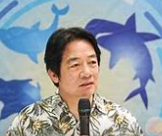
This election, closely watched by global powers, saw the DPP, the current parliamentary majority, pledge to maintain Taiwan’s sovereignty despite Beijing’s influence. Meanwhile, the Kuomintang (KMT) favors closer ties with China but denies being pro-Beijing. The Taiwan People’s Party (TPP) is open to re-engaging with China but is cautious about a complete takeover.
The Kuomintang had a stronghold on the presidency in Taiwan for over five decades before the Democratic Progressive Party broke their streak with wins in the 2000 and 2004 presidential elections. The KMT made a comeback in 2008 and 2012, but the DPP reclaimed the presidency in 2016 and 2020, marking the third power transition since the country’s democratization, highlighting the vibrant democracy in Taiwan.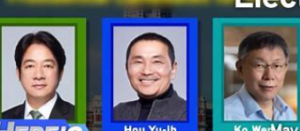
Lai’s Future Plans
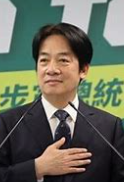
In his victory speech, Lai Ching-te, the newly elected president of Taiwan from the Democratic Progressive Party (DPP), hig2024hlighted the resilience of the Taiwanese people in resisting external influences on the election. He also emphasized the importance of Taiwan’s semiconductor industry, urging China and other nations to value this asset.
In his first remarks post-election, Lai affirmed his commitment to democracy, stating that his party will stand alongside democracies worldwide. He expressed gratitude for the support received, viewing it as an affirmation of Taiwan’s path. Lai pledged to maintain the status quo in cross-strait relations, emphasizing his determination to protect Taiwan from threats and intimidation from China. He also stressed the need for dialogue with Beijing on an equal footing to replace confrontation. In a gesture of inclusivity, he extended an olive branch to his opponents, expressing his willingness to incorporate their talents.
China labels Lai ‘dangerous’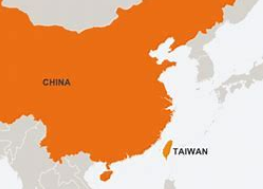
China’s relationship with Taiwan is intricate, especially during election times. China, considering Taiwan as a breakaway province, often employs various strategies to sway Taiwan’s elections. The election results usually provoke diverse reactions from China, with victories by pro-independence parties like the DPP leading to warnings of heightened tensions. China often frames these elections as a peace versus war choice and doesn’t hesitate to use economic pressure and sanctions against pro-independence winners.
The newly elected president of Taiwan, Lai Ching-te, has a complex relationship with China. As a member of the Democratic Progressive Party (DPP), he strongly supports Taiwan’s unique identity and firmly rejects China’s territorial claims. This stance resonates with many Taiwanese who value their distinct identity and sovereignty.
Despite China’s labeling of him as a dangerous separatist during the election campaign, Lai has pledged to maintain peace across the Taiwan Strait and strengthen Taiwan’s defenses. Lai’s commitment to follow the balanced approach of his predecessor, Tsai, has also been a point of contention. Despite Beijing’s labeling of him as a “dangerous separatist”, Lai has stated that he will maintain the status quo and pursue peace through strength.
These factors contribute to the intricate and often tense relationship between China and Taiwan’s new president, Lai Ching-te.
Was China the only agenda of elections?
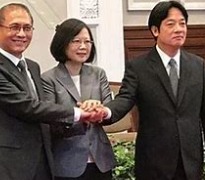
No. Taiwanese voters were concerned about a variety of issues, including the high cost of housing, low wage growth, and unstable power supplies. DPP won 40% of the vote, a contrast to the current President Tsai Ing-wen’s landslide victory four years ago with more than 50% of the vote.
The parliamentary elections, running concurrently with the presidential race, carry substantial significance. The results are pivotal, especially if no party manages to secure a majority. This could potentially obstruct the new president’s legislative agenda and spending plans, especially in the realm of defense.












Comments 1